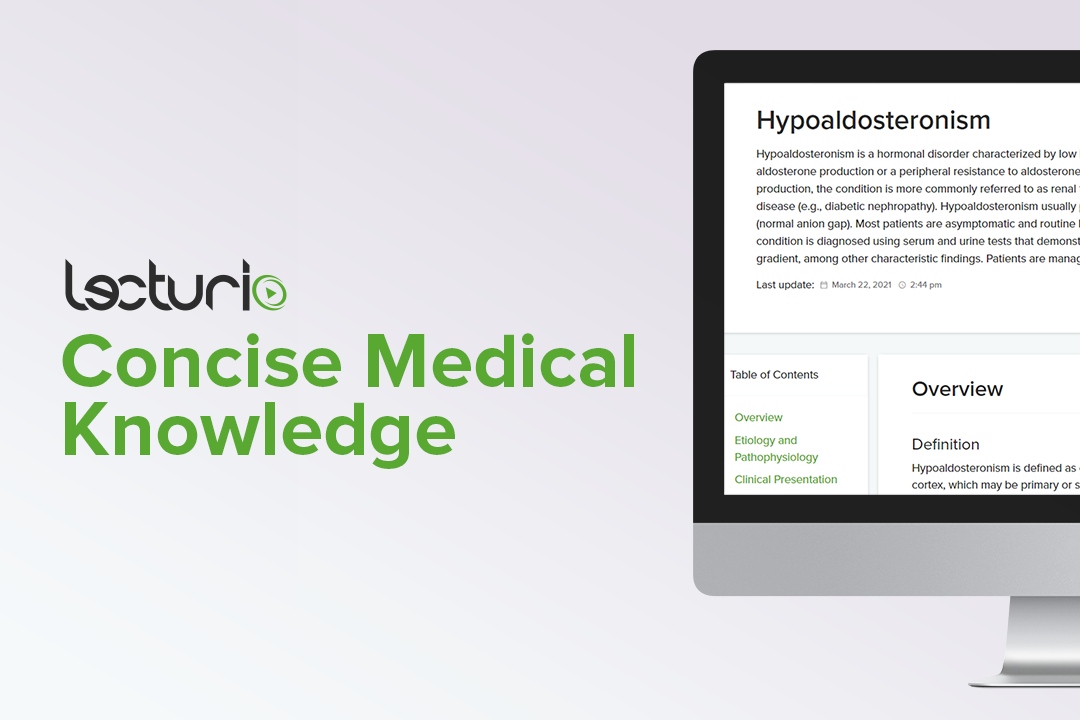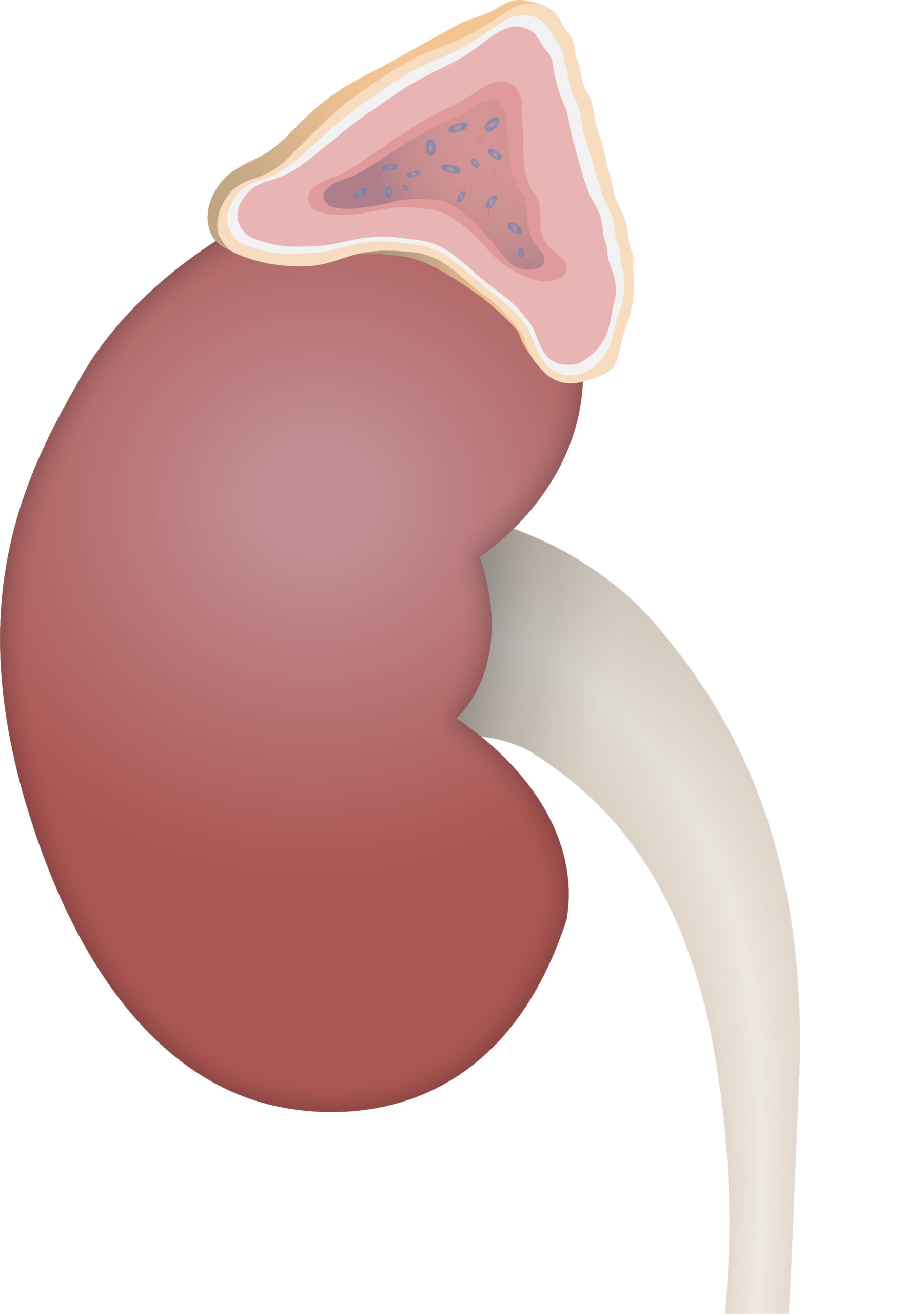Playlist
Show Playlist
Hide Playlist
Hypoaldosteronism
-
Slides Hyper-Hypo-Aldosteronism EndocrinePathology.pdf
-
Reference List Pathology.pdf
-
Download Lecture Overview
00:01 If that was hyperaldosteronism, we will then move on to hypoaldosteronism. 00:06 You did the same thing. Quickly tell me Sodium levels, decrease potassium levels, elevated hydrogens increase does pH is decreased. 00:13 Can you do it that quickly? Yes, you can. 00:15 Listen to me again, you'll get it. 00:18 Results in, results from type 4 renal tubular acidosis or could result in What do you mean? I just told you, if you didn't have enough aldosterone, your hydrogen concentration increases in your plasma. 00:31 What happens to pH? Oh, renal tubular acidosis. 00:36 When you say renal tubular acidosis, what does that acidosis actually referring to? Not in the urine, right? It's in the plasma. 00:44 Type 4, type 4, type 4. 00:45 Remember, RTA you want to know, one, two, and four. 00:53 However, the biggest difference between this type of RTA in any other if you don't have aldosterone, take your time, aldosterone and potassium, If you don't have aldosterone, you're not getting rid of a potassium, you're retaining it resulting in hyperkalemia. 01:12 That is dangerous. 01:13 That hyperkalemia is dangerous, especially for the heart. 01:16 You're then causing, as you remember, depolarization of the resting membrane potential, and that is not a good thing, is it? Hypoaldosteronism. Hyporeninemic. How is this occurring? Common in chronic kidney disease. 01:34 So if the kidney starts decreasing in function, then you know that you don't have enough renin. 01:38 If you don't have enough renin, then what then happens to your aldosterone level? Decreases. 01:43 This is called hypoeninemic hypoaldosteronism. 01:47 So that three times fast. 01:49 Language, language, language. 01:51 Apart from maybe a little bit of memorization, but really understand what this is saying. 01:56 Also seen with NSAIDs cyclosporine, and HIV. 02:01 It could potentially have hyporeninemic hypoaldosteronism. 02:07 Hyperreninemic hypoaldosteronism. 02:11 How is this even possible? What if you give an ACE inhibitor? If you give an ACE inhibitor, you've inhibited the conversion of angiotensin I into angiotensin II. 02:21 Stop there. 02:24 So if you don't even have angiotensin II, how in the world are you going to stimulate that enzyme called aldosterone synthase? You can't. 02:32 Resulting in, what's my topic? Good. 02:35 Hypoaldosteronism. 02:36 But if you blocked that enzyme, all substrates approximately will... 02:41 increase. 02:42 You put a block such as an ACE inhibitor, a pro drug Renin increases. Hyperreninemic hypoaldosteronism. 02:52 Heparin, primary adrenal insufficiency, and Addison's disease. 02:57 In Addison's disease, how much of your cortex is destroyed? All of it. 03:02 From henceforth, if you want to think of Addison's, primary adrenal insufficiency, you need to add hormones to your patient, because all hormones are deficient. 03:15 That's Addison's. 03:18 And now we're getting really interesting, Conn's syndrome, Cushing, Addison's. 03:24 Students get this confused all the time. 03:27 Keep replaying this, replaying this, replaying this. 03:31 So this is firmly etched in your head. 03:33 You must know the difference between Conn, Cushing, and Addison. 03:38 So in Addison, aka primary adrenal insufficiency entire cortex is dead, aldosterone is decreased. 03:46 What's my feedback for aldosterone? Renin. I told you clinically, that's what you're paying attention to hyperreninemic hypoaldosteronism. 03:55 Potassium sparing drugs, congenital adrenal hyperplasia, What's this one? The most important enzyme deficiency in congenital adrenal hyperplasia. 04:05 21 beta hydroxylase. 04:07 If that is deficient, no mineralocorticoid hypoaldosteronism hyperreninemic. 04:14 Are we clear now? You should be able to go through each one of these differentials and understand why your patient has hypoaldosterone. 04:23 And what kind of concentration of renin do you actually find? after patient upright for three hours. 04:31 Check for plasma renin activity, serum aldosterone, and serum cortisol. 04:37 After patient upright for three hours. 04:39 And see as to whether or not you, what kind of levels do you find of your plasma and renin? What about aldosterone? And so on and so forth. 04:48 PRA and aldosterone will be low in hyporeninemic hypoaldosteronism straightforward. 04:53 Give me an example there please. 04:55 If you're hyperreninemic it means that maybe you have chronic kidney injury. No renin. 05:02 Plasma renin activity will be high in adrenal insufficiency AI stands for adrenal insufficiency. 05:09 That's your Addison's. 05:13 Topic, hypoaldosteronism no aldosterone plasma renin activity, increased. 05:18 Whereas, serum aldosterone of course, that will be low. Right? in Addison's insufficiency or adrenal insufficiency. 05:27 Tell me about this area in Addison's, tell me about this area around the mouth. 05:32 Hyperpigmented. 05:33 Good. 05:34 Mineralocorticoid replacement will addressed to hyperkalemia. 05:37 But it's not advisable for many patients with hyporeninemic hypoaldosteronism due to potential for worsening of hypertension, and fluid overload. 05:48 Keep that in mind. 05:50 So, if you have fluid overload, and you're thinking about giving me a corticoid aren't you making matters worse? If you have a patient a CHF, or if you have a patient that is in a state of increased volume, and then you give aldosterone, you're making things worse. 06:07 In the setting low potassium diet, and if needed, a loop or thiazide diuretic would be much much, much more advisable to control the hyperkalemia. 06:17 Spend a minute here on this paragraph so that you understand how, what your next step of management would be if your patient is suffering from hyporeninemic hypoaldosteronism. 06:29 That's your primary focus in this paragraph. 06:33 And your focus here would be more symptoms trying to get rid of the fluid through proper management.
About the Lecture
The lecture Hypoaldosteronism by Carlo Raj, MD is from the course Adrenal Gland Disorders.
Included Quiz Questions
What is NOT associated with primary hypoaldosteronism?
- Hypervolemia
- Hyperkalemia
- Metabolic acidosis
- Suppression of ammonia excretion
- Hyponatremia
What is NOT associated with hyporeninemic hypoaldosteronism?
- ACE inhibitor therapy
- Chronic kidney disease
- Chronic diabetes
- Cyclosporine
- HIV
Patients diagnosed with which condition may not benefit from mineralocorticoid replacement therapy?
- Hyporeninemic hypoaldosteronism in the setting of stage 4 chronic kidney disease
- Hypereninemic hypoaldosteronism
- Congenital isolated hypoaldosteronism
- Congenital adrenal hyperplasia
- Primary adrenal insufficiency
Customer reviews
5,0 of 5 stars
| 5 Stars |
|
5 |
| 4 Stars |
|
0 |
| 3 Stars |
|
0 |
| 2 Stars |
|
0 |
| 1 Star |
|
0 |





